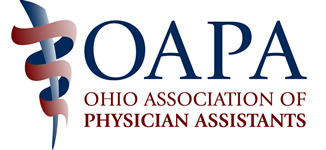Complete Story
07/01/2025
2025 Pharmacology On-Demand Content
Stay current and meet your licensure requirements with this comprehensive, self-paced pharmacology package designed specifically for busy PAs. Access expert-led sessions on the latest prescribing updates and clinical essentials - on your schedule, from any device. Learn what you need, when you need it.
DEA Guidance on Storing, Prescribing, and Disposing of Controlled Substances, presented by Martin Redd
- Discuss the storing, prescribing, and dispensing of controlled-substance medications prior to issuance of DEA registration (i.e. prescribing medications while a DEA registration application is pending)
- Review how NOT to divert medications to drug-dependent patients or patients for whom the medications are not medically-necessary
- Identify how NOT to conceal information from, or misrepresent information to, the DEA during the registration application or renewal process
- Discuss the prescribing, dispensing, or distributing any controlled-substance medication not covered by a practitioner’s DEA registration
- List the penalties for failing to generate and maintain all requisite forms of documentation for registered practitioners’ storage, prescription, dispensing, and distribution of controlled-substance medications
Drug Rashes, presented by Danielle Spatholt, MSBS, PA-C
- Review common reaction patterns associated with drug rashes
- Review newly approved medications and their dermatological side effects
- Discuss how to determine if a drug rash requires higher level of care
Demystifying DMARDS: Basics of Biologic and Nonbiologic Therapy in Rheumatology, presented by Riddhi Patel, PA-C
- Discuss the top treatment agents for rheumatoid arthritis, psoriatic arthritis, lupus, and ankylosing spondylitis
- Discuss goals of treatment in rheumatology
- Review pharmacokinetics, metabolism, excretion, mechanism for action, and contraindications for nonbiologic DMARDS, TNF inhibitors, JAK inhibitors, T cell inhibitors, B cell inhibitor, IL 17 inhibitors, IL 6 inhibitors, IL 23 inhibitors, PDE4 inhibitor
- Review common side effects and ways to manage or determine severity of side effects
- Compare and contrast biologic therapy options based on patient co-morbid conditions and medical history
Pain Management in the ED: New Frontiers and Best Practices, presented by Dr. Roy Seitz, MD
- Determine initial approach and evaluation of patient’s needs
- Review traditional pain management practices including metabolism and pharmacology
- Describe new approaches to pain management including non-pharmacological
- Different pokes for different folks: tailor control of pain to the situation/available tools/individual patient
Chemical Dependency and the Healthcare Professional, presented by Christopher Hart, BSPh
- Develop a comprehensive understanding of addiction as a chronic, relapsing disease, differentiating it from moral failing or personal weakness
- Describe effective treatment and prevention strategies, including pharmacological interventions, behavioral therapies, harm reduction approaches, and prevention strategies aimed at reducing addiction initiation and relapse
- Identify the risk of substance use disorder among healthcare professionals and prevention strategies, exploring the factors that contribute to substance use disorder among healthcare professionals, including increased access to medications, stress, and burnout
- Define prevention strategies, early intervention techniques, and resources available to support healthcare professionals struggling with addiction
Treatment of COVID-19, presented by Elisha Fleig, MPAS, PA-C
- Triage symptoms to analyze appropriate level of care for COVID-19 positive patients.
- Identify standards of care for COVID-19 treatment in outpatient, inpatient, and critical care areas.
- Review treatment interventions for refractory infections.
- Discuss ancillary COVID-19 treatments/future directions for care.
COPD & Asthma Management, presented by Cameron Hord, PA-C
- Diagnose and manage Asthma
- Diagnose and manage COPD
- Identify non-pharmacologic management of COPD and Asthma
Cascade Through Anticoagulation Management, presented by Sean Kramer, MSHS, PA-C
- Evaluate best current treatment options for inpatient and outpatient anticoagulation
- Outline the most common conditions requiring anticoagulation and special considerations in management
- Discuss common anticoagulation class pharmacokinetics, metabolism, excretion, mechanism, contraindications, and side effects
Boosting Immunity, Boosting Knowledge: Vaccine Updates 2025, presented by Kaitlyn Rivard, PharmD, BCIDP
- Describe the FDA and CDC's roles in vaccine approvals and recommendations
- Compare and contrast the types of vaccine products approved for use in the United States
- Interpret vaccine recommendations outlined by the CDC Immunization Schedule
Immune Checkpoint Inhibitors: Recognition and Management of Potential Toxicities, presented by Brad Pierce, MSPAS, PA-C
- Review the mechanism of actions and indications of immune checkpoint inhibitors
- Recognize the presentations of the most common immune-related adverse events (irAEѕ) associated with immune checkpoint inhibitors
- Formulate an appropriate management plan in a patient with an immune checkpoint inhibitor irAEѕ.
Weighing Your Options: A Review of Antiobesity Treatment Options, presented by Emily Doycich, PharmD, BCPS, and Shanail Berry, M.D.
- Recognize the role of medications in the treatment of obesity
- Discuss commonly prescribed medications that may cause weight gain or interfere with weight loss efforts
- Select most appropriate medication choice for weight loss through patient case scenarios
Insulin Pharmacology and Diabetes Technology Review, presented by Caitlin Omoregie, PA-C
- Review insulin pharmacokinetics
- Identify principle functions of insulin pumps and continuous glucose monitors
- Discuss automated insulin delivery system function and current models
This 12 hour, voice-over-slides set of recordings is available on-demand.
OAPA Members = $365
OAPA Nonmembers = $545
The purchase receipt will include information about how to access the recordings and evaluation. CME credit will be granted to individuals who purchase and watch all courses and then complete the evaluation.
Please contact oapa@ohiopa.com with any questions.
*This activity has been reviewed by the American Academy of Physician Associates Review Panel and is compliant with AAPA CME Criteria. This activity is designated for 12 AAPA Category 1 CME credits. Approval is valid from 7/1/2025 to 6/30/2026. PAs should only claim credit commensurate with the extent of their participation.

